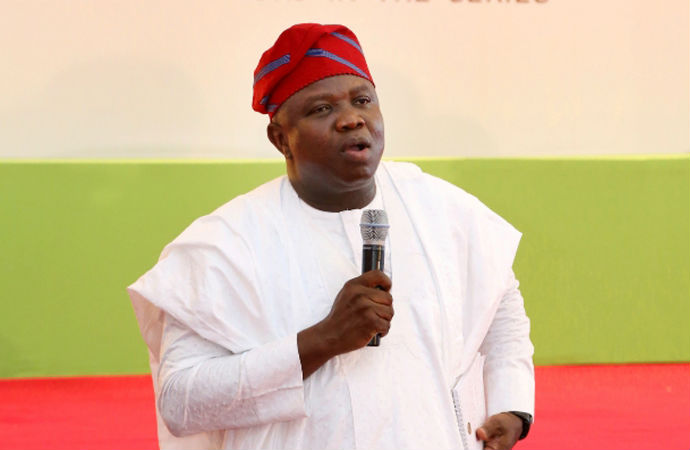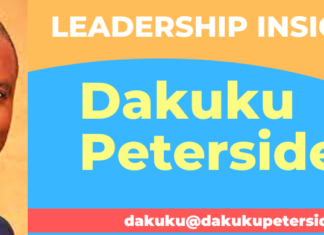By Rasak Musbau
Events marking the golden jubilee of Lagos State have commenced and will continue till May 27. It recently began with a special musical play, Wakaa, at the Muson Centre, Onikan, Lagos.
No doubt, the anniversary, dubbed by the co-chair of the Lagos @ 50 Planning Committee, Habeeb Fasinro, as “a celebration of Lagosians, by Lagosians, for Lagosians” is a milestone event that ushers in a unique opportunity to document and capture for posterity, in print and on audio-visual, different aspects of the history and progress of the state as well as the contributions of its icons and builders.
For Lagos, the need for celebration is pertinent. Of all the 12 states created in 1967 by General Yakubu Gowon, only Lagos has remained indivisible. Aside this, since inception, Lagos has continued to show the way forward in its commitment to a Nigeria where no one is denied opportunities for self-actualisation on mundane considerations. In fact, the poetic tag of Eko gb’ole, ogb’ole (Lagos harbours all manners of people) is a metaphor that quite defines the status of Lagos as a melting pot in Nigeria.
Lagos’ cosmopolitan nature makes it a basket of paradoxes. The burgeoning mega city is home to all sorts of people. It is in Lagos that you get to meet some of the hardest working people on the face of the earth. But it is also here that you get to meet people who live on the fast lane and flaunt wealth without any visible source of livelihood. The former constitute bulk of icons, administrators, business moguls, literary giants, legal luminaries, social and civil actors currently on display boards across the state.
The question might be asked, why the grand celebration? The state government has decided to make Lagos Golden Jubilee a grand one because the ‘Centre of Excellence’ does not do things in half measures. Apart from this, all indicators point to the fact that the metropolis has good reasons to celebrate. Lagos is already a mega city of about 21 million people with a strong internal brand. If Lagos was a state in the United States, its Gross Domestic Product (GDP) would be higher than that of 14 other states, including New Mexico, Delaware and North Dakota. The GDP of Lagos alone is already bigger than that of Kenya, and bigger than the combined GDPs of 25 other African countries.
Inside the federated states of Nigeria, Lagos contributes 25 per cent to the national GDP (or 32 per cent to non-oil national GDP) while being the smallest of the 36 states. Lagos is 65 per cent of Nigerian tourism, 50 per cent of national port revenue, over 70 per cent of international air traffic, and 50 per cent of national energy consumption. In the coming year, Lagos is poised to become the third mega city in the world just after Tokyo and Mumbai. That’s a solid foundation to build on.
Fortunately, the state has a development plan, and steadily but surely building a foundation for the progress of the state with varied futuristic public policies targeting development of state’s public infrastructure and utilities and at the same time focusing on putting an end to anything that could blight the development plan of the state.
In terms of branding, Lagos once had a reputation of being a dirty and disorganised city. That was prior to 1999 when heaps of refuse, bloated corpses, abandoned broken down vehicles and decayed infrastructure among other negative narratives were common features in the state. Without doubt, succeeding administrations since 1999 have positively transformed the profile of Lagos. Today, nobody is talking about heaps of refuse again.
One aspect of life that was also as interesting as it was dangerous in the state in the recent past was the menace of the ‘Area Boys’ (street urchins). At a point, these boys became a law unto themselves and military administrations from the era of Gbolahan Mudashiru to that of Mohammed Buba Marwa battled endlessly to rid Lagos of their menace. Oshodi, Mile 12, Ebute Ero and the likes used to be notorious flash points of nefarious activities of ‘Area Boys’. As of 1996, the number of ‘Area Boys’ operating on Lagos Island alone was around 1,000.
From 1999 till date, conducive policy environment that deals with youth unemployment and phasing out of notorious flash points were used to tackle the worrisome ‘Area Boys’ trend. Today, the ‘Area Boys’ menace has been systematically dealt with in the state.
The good thing is that, from all indications, Lagos has a very bright future. The present administration in the state is unrelentingly committed to the Lagos State Development Plan, paying great attention to all the four pillars of development as they affect the economy, security and the environment. Cheerfully, Lagos is now an oil-producing state, but in reality the government is not distracted by this. The focus of the current government is to ensure that in the next two to three years, the state’s internally-generated revenue (IGR) will account for 100 per cent of its revenue, so that it will hardly depend on the allocations from Abuja.
The current administration operates on a policy of inclusiveness, which is anchored on the principle that no part of the state is neglected in its developmental strides.
In its economic transformation blueprint, the current administration is keen to leverage on the arts, entertainment and tourism as well as sports to create a buoyant economy for the state. The administration also pays high premium on public security and it is not only supporting federal security agencies but has blazed the trail in community policing through the recently-launched Neighbourhood Safety Corps.
Since we are now in a technology-driven world, the Akinwunmi Ambode administration is working hard to move Lagos from a mega city to a smart city where technology will drive development, innovations and security. Part of the bid to make Lagos a technology frontier and smart city is the recently introduced Lagos education sector computer programming tagged ‘Code Lagos’. Coming on the heels of another recently initiated programme, tagged ‘Eko n Keko’ (Lagos is learning), this is a pointer to the desperation of Lagos to use education as a veritable tool of socio-economic development.
Surely, Lagos is presently moving in the right path, and the future, no doubt, looks bright. But then, for Lagos to remain a leading light in the country and, indeed, the world, every Lagos resident must abide by the laws of the land. Never again must we drag Lagos back into the ages of a ‘Jungle City’.
*Musbau is of Features Unit, Lagos State Ministry of Information and Strategy, Alausa, Ikeja.













